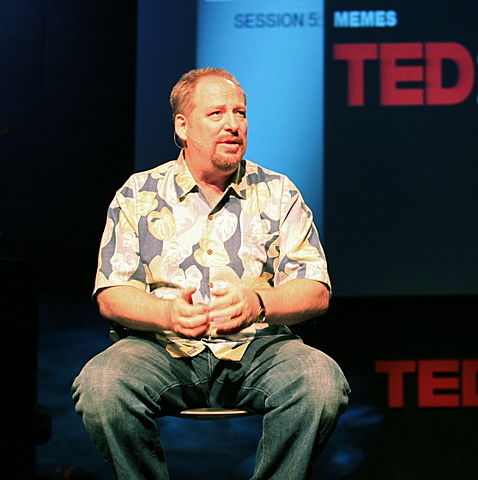What does love look in today’s public square? (Photo by Rhododendrites)
Just over one month has passed since the atrocity in Orlando. In those four weeks, many have insisted that the Christian community needs to accept and embrace, rather than judge and condemn, the LGBT lifestyle. Christian friends and acquaintances have said that it is important now to build bridges to the trans community. Hate and fear are not to guide the Christian’s response.
Yes, we are to love and build bridges to all people. That’s part of loving our neighbor, part of the richness of life to know people who are different from you. Promoting justice for marginalized people is commended in Isaiah 58:6-7, among other places.
However, does loving someone mean that you must accept their agenda and lifestyle? Or, to turn the argument around, can you disagree with someone—Black Lives Matter or the trans community, for example—without hating them?
The need to build bridges, according to some, overrules the calling to speak out against Jihadists or gender neutral bathrooms. It is said that to speak out is unloving and insensitive.
There seems to be a false dichotomy in today’s discussion. Compassion, it is said, requires you to leave your convictions at the door. If you speak your convictions you are hateful, racist, homophobic, Islamophobic.
Is speaking the truth really antithetical to love?
Must one abandon convictions to build bridges of love to a marginalized community?
Some within marginalized communities claim that disagreement with their choices is tantamount to hate. You cannot love them if you disagree with their vision and lifestyle. Some Christians tend to concur.
I would challenge this conclusion. Paul reminds us in Ephesians 4:15 that we are to “speak the truth in love.” Both sides—truth and love—are vital to Christian obedience. Our attitudes and behaviors toward neighbors, strangers, and even enemies, are always to be marked by love. That does not require compromising our convictions. In fact, speaking the truth in love should be a primary pattern for every Christian.
Speaking the truth in love creates tension
To speak the truth in love requires us to live in tension. If we seek to avoid the tension, we may lose both truth and love. If, without regard for our convictions, we simply “build bridges” to, say, the LGBT community, we have not only left truth behind, we have abandoned love. Conversely, if we speak truth without loving, then we have lost both truth and love.
Can we disagree with someone’s beliefs and behavior and still love them profoundly? Yes! Can we love someone profoundly who may hate our convictions and commitments? Yes! And we must!

Saddleback Church pastor Rick Warren has astutely said: “Our culture has accepted two huge lies. The first is that if you disagree with someone’s lifestyle, you must fear or hate them. The second is that to love someone means you agree with everything they believe or do. Both are nonsense. You don’t have to compromise convictions to be compassionate.”
There it is! You don’t have to compromise convictions to be compassionate. This is such a wise and balanced statement.
In fact, speaking truth is compassionate.
As we have written elsewhere, in the postmodern world, truth is being replaced with “narrative.” Subjective imagination is crowding out objective reality. If a male by birth – biologically and genetically – “feels” that his real identity is female, then in today’s world he can declare himself female and society is obligated to accept his self-definition despite the obvious reality.
Is it compassionate to accept this socially constructed identity? Or is the compassionate thing to point to the reality of biology and genetics. Or to say it differently, is not speaking truth compassionate?
Yes. Speaking truth is compassionate!
People from the BLM, LGBT and transgender communities who say “unless you accept our convictions and our agenda you do not love us” have bought into the modern politically correct, moral relativistic culture.
Christians who say that building bridges to aggrieved communities takes precedence over speaking truth have, in fact, bought into the mindset of this present age. This view makes both truth and morals relative. Narrative trumps reality. Feelings are more important than facts. Moderns and Postmoderns insist that to love is to accept their assumptions. If we reject their assumptions, we must hate them.
Ken Myers of Mars Hill Audio helps us to grasp the real issue here. If we want to really love our neighbors we need to speak the truth in public witness.
If Christians want to participate in public life, they are told they must abide by the rules of “public reason.” These rules insist that all truth claims about ultimate reality be left at home, that public debate can only be conducted by avoiding metaphysical claims. Of course, the assumption that social life can be ordered without reference to ultimate principles is based on certain tacit beliefs about reason, human nature, and the goals of society that are not neutral. When the umpires are actually members on one of the teams, it’s necessary to declare that the game is rigged.
Paul’s example at Mars Hill suggests that Christian public witness involves calling our neighbors to a new framework of understanding everything. The universal call to repentance that the Gospel necessitates is not just a plea for individual piety. It is an announcement that Christ’s coming — and what it reveals about Creation and history and human nature — has public consequences. When Christians insist that this is true, they are not thereby withdrawing from cultural engagement. Refusing the rules of engagement drawn up by modernity is in fact the most generous, truthful, and loving service we can offer our neighbors. After all, the cultural chaos that grieves us harms them even more. [emphasis added]
To be compassionate, in the long run and in a meaningful way, is to challenge the underlying assumptions of the current debate. For those whose lifestyles are promoted by those assumptions, God intended better.
We are to speak the truth in love. Speaking truth is a mark of compassion.
- Darrow Miller






